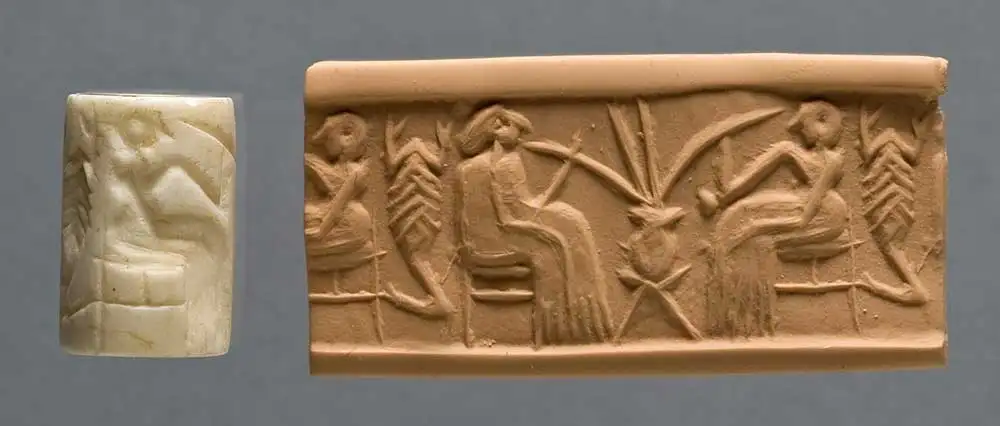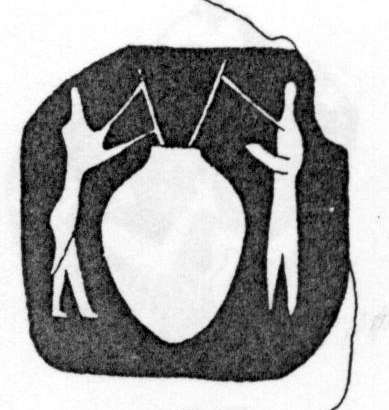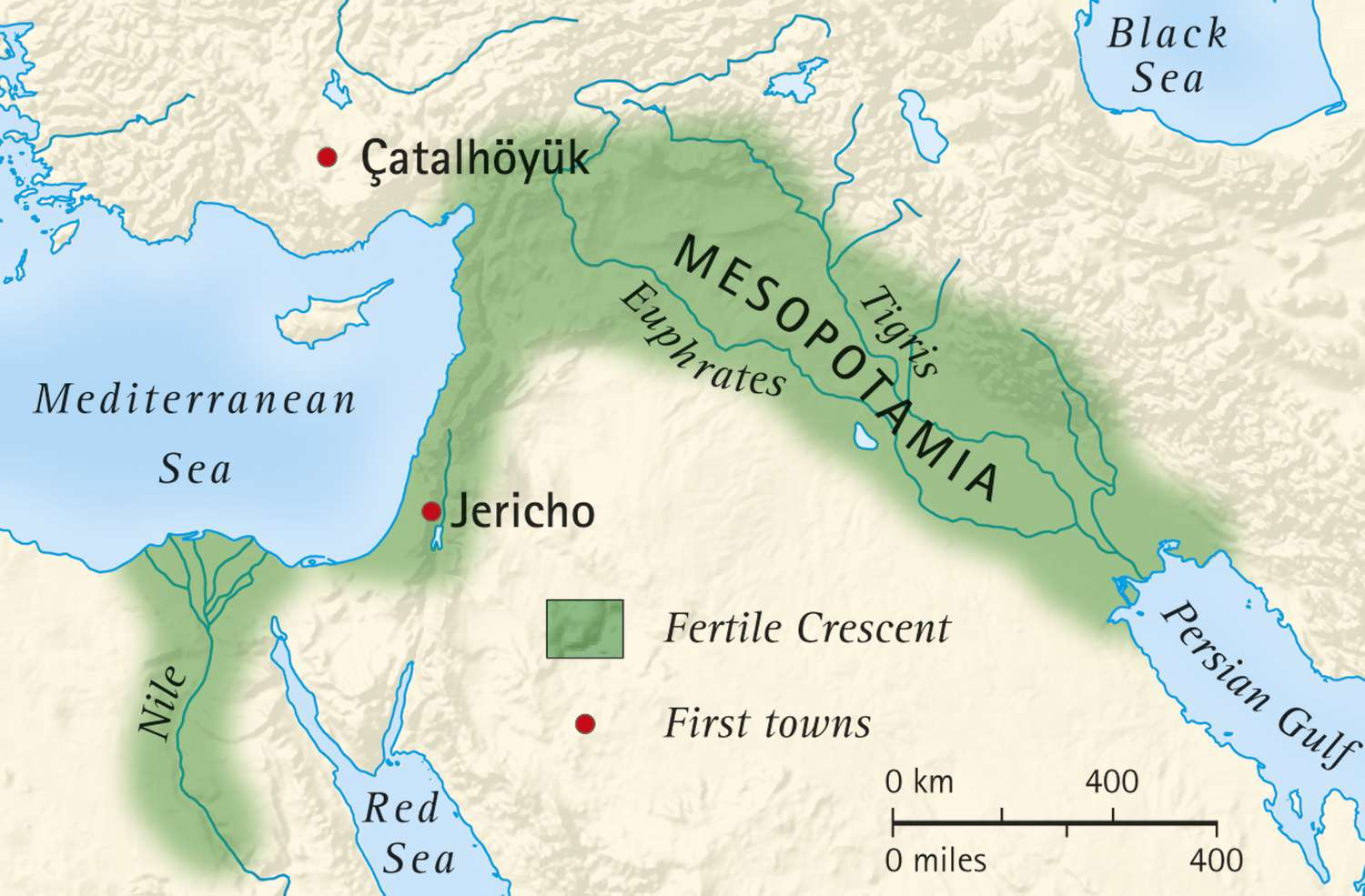🏺 A History of the World in 6 Glasses
🧉 Formating
==Big Idea== - red highlight
@@PE (political, economical)@@ - orange highlight
CS (cultural, social) - yellow highlight
%%IE (innovative, environmental)%% - green highlight
cause → effect
word <- definition
Short on time? The introduction is a summary of the rest of the book.
🍼 Introduction: Vital Fluids
- Importance of Water in Past
- A long time ago (150,000 years to civilization) → humans confined to rivers
- storing was impractical
- Other beverages emerged → had to be made deliberately (unlike water)
- ==Water was disease filled== → different beverages were not
- many uses
- @@currencies@@
- religious rites
- @@political symbols@@
- philosophical + artistic inspiration
- @@highlight power + status of elite@@
- @@subjugate + appease lessers@@
- celebrate births
- grieve deaths
- forge + strengthen social bonds
- @@seal business transactions + treaties@@
- sharpen senses
- dull the mind
- %%use in medicine%%
- %%use as poison%%
- Each drink became popular when:
- ==met a need OR aligned w historical trend==
- Path toward modernity (Beer)
- adoption of farming
- Near East 10k years ago → domestication of cereal (wheat etc.) grains
- → rudimentary beer
- growth from civilizations
- organized agricultural large scale → surplus
- surplus of grain → more beer
- acted as a normal drink +
- freed workers → specialization
- @@wages paid in bread + beer@@ (cereal grains)
- Preliminary Western thought (Wine)
- Greeks
- advances in philosophy + politics + science + literature
- spread worldwide through wine trade on seas
- discussed at symposia (formal drinking parties)
- Romans
- hierarchy reflected in wine style
- Christianity → wine part of ritual
- Islam → wine banned
- Exploration and Expansion (Spirits) [aka brandy, rum, whiskey, etc.]
- Global sea routes
- European wanted to expand
- %%Distilled drinks → alcohol at sea%%
- @@Currency@@
- slave trade
- @@establishing USA@@
- Age of Reason (Coffee)
- coffee houses
- new %%scientific%% + @@political@@ + @@economic@@ theories
- different from taverns
- encouraged clear thinking
- scientific societies + newspapers + financial institutions + revolutions
- Trade with the East (Tea)
- foundations for @@imperialism@@ + %%industrialization%%
- @@open trade routes@@ from popularity in Britain
- Britain as a global superpower
- need to tea
- demand → British @@foreign policy@@
- @@independence@@ of @@USA@@
- @@less power@@ in @@China@@
- @@production@@ in @@India@@
- America’s National Drink (Coca-Cola)
- @@consumer capitalism@@ → @@US@@ into superpower
- invented as a medical pick-me-up
- with American armed forces around the world
- symbol of @@single global marketplace@@
- world’s most widely know product
🍺 Beer in Mesopotamia and Egypt
🦴 A Stone-Age Brew
🦖 A Pint of Prehistory
- migration of humans out of Africa
- 50k years ago
- small bands
- lived in ==temporary homes== → caves, huts, tents
- ==seasonal== food supply
- %%Agricultural revolution%%
- 12k years ago
- settled into @@villages@@ → cities → empires
- also developed new %%technologies%%
- Barley + wheat
- before could only drink water/animal products
- Don’t know when invented
- no beer before 10k BCE
- common at 4k BCE

- ancient beer has grains + chaff → needed straw in order to drink

- nomadic → settled lifestyle
- increase in social complexity → ==emergence of cities==
🔎 The Discovery of Beer
discovered
- gathering of wild grain around end of last Ice Age
- 10k BCE in Fertile Crescent
- ideal environment for sheep + goats + cattle + pigs + barley
- first established large scale settlements
- ==reliable source of food==
Grain usage
- can’t eat raw
- edible by crushing + mixing with water
- \
- made with soup → %%thickener%%
- \
- fish + nuts + berries + water
- plaster + bitumen-lined basket
- hot stones dropped in
- grains have starch → absorb moisture and burst
- thickening soup
- %%Stored%%
- stores for weeks/months/years
- do not recommend
- could be made with soup or eaten on own
- gruel
- → development of tools to store grain
- guard against %%famine%%
%%Innovations with grain%%
- flint-bladed sickles → harvesting
- woven baskets → carrying
- stone hearths → drying
- underground pits → storing
- grindstones → processing
→ ==encouraged people to stay in one place==
- 1960s experiment (archeologists are nerds)
- using flint-bladed sickle ==harvested 2 pounds of grain in 1 hour== of wild grains in Turkey
- family working 8 hours a day x 3 weeks = ==each member gets a pound a day for a year==
- ==had to stay near wild cereal== → not miss best harvest time
- would not want to leave ==unguarded==
==→ first permanent settlements==
- East Mediterranean coast 10k BCE
- round huts + wooden roofs
- hearth + stone floor + 4-5 yards wide
- village ~ 50 huts → 200/300 people
%%grain properties (1) → sugar%%
- soaked in water → %%sprouted → tasted sweet%%
- storage pits not watertight
- diastase %%enzymes → starch → sugar or malt%%
- barley produces most → tastes sweetest
- not a lot of sweet things → highly valued
- %%deliberate malting%% → grain soaked then dried
%%grain properties (2) → Beer%%
- gruel left out %%→ slightly fizzy + pleasantly intoxicating%%
- not first alcohol found
- fruit juice ferments → wine
- seasonal + perishes easily
- could not be stored without pottery (6k BCE)
- water + honey → mead
- limited qualities of wild honey
- could not be stored without pottery
- ==→ made reliably + quantity + when needed==
- brewed in
- pitch-lined baskets
- hollowed out trees
- Sahti beer (made in Finland) tradition
- large shells
- 19th century Amazon basin was most recent
- stone vessels
- %%quality improved through trial + error%%
- stronger beer <-
- more malted grain in gruel
- longer left to ferment
- throughly cooking gruel
- malting converts 15% of starch → boiled → more enzymes transform → more starch into sugar → more alcohol
- same container for brewing
- mash tubs in Mesopotamia
- yeast cultures in containers in cracks
- didn’t need to rely on wild yeast
- adding berries + honey + spices + herbs + flavorings → taste different
- types of beer
- Ancient Egyptian 17 kinds of beer → long names of great importance
- religious ceremonies have special names
- Ancient Mesopotamia >20 kinds of beer → controlled taste by adding %%bappir%%
- bappir <- beer-bread
- sprouted barely → small loaves → baked twice → dark + crunchy unleavened bread
- stored for years
- kept in government storehouses
- only eaten in food shortages
- debate over beer vs. bread vs. gruel
- archeologists argue
- beer as an offshoot of bread or bread as an offshoot of beer
- <- from the first breads being bappir
- author’s assumption: %%both bread + beer from gruel%%
- thick gruel + sun → flatbread
- thin gruel + time → beer
😵💫 Under the Influence of Beer?
- historical evidence
- writing was not invented → no written records for cultural + social impact
- inferred from later traditions that continued
- social drink
- sumerian depictions → shared vessel
- was possible at time to filter + pottery → served individually
- ritual persisted even though not needed
- unlike food → beverage shared
- cutting up meat → some have desirbale
- sharing drink → trusted
- clinking of glasses
- magical drink
- fermentation + effects → magic
- connected to gods
- Egypt → Osiris
- religious ceremonies
- every religious ritual → America + Africa + Eurasia
- Inca → chicha (beer) to ground or rising sun
- Aztec → pulque to Mayahuel
- China → beers from millet + rice
🌱 Beer and Farming, the seeds of Modernity
- beer → %%adoption of agricultural%%
- up for debate
- beer discovered → socially + ritually important → desire to have more
- one of many factors
- %%vitamin help%%
- long term storage → would have been drunken earlier → low alochol high yeast
- vitamin D → need less meat
- ==safer to drink than water==
- contaminated
- communal storehouses
- storing + ritual → intertwined → recorded in clay tokens → priests live off
- %%→ autocracy, writing, bureaucracy%%
🌆 Civilized Beer
🛞 The Urban Revolution
- Mesopotamia → most farmers
- banded together for many factors → rise of urban working population
- invasions?
- made possible by agricultural surplus
- freeded admin + craftsman
- funded public works
- edible money
🧑 The Drink of the Civilized Man
- Sumer (S Mesopotamia)
- writing emerged 3.4k BCE
- Epic of Gilgamesh
- primitive nature of Enkidu → shown lack of familiarity w bread and beer
- ^^saw as made fully human^^
- drunkness seen humorous
- Egypt
- beer in pyramid texts
- Ra + Hathor
- disapproval of drunkeness
- unrepresentative of any career besides scribe
🪶 The Origins of Writing
- earliest documents
- tax reciptes + wage lists w beer
- @@neohilitic socialism → control over economy@@
- record what was going out → writing
- different shapes → different standard amounts
- primary source of food → 3k to 4k calories
- Cuneiform
- pictographs became more abstract
🪙 Liquid Wealth and Health
- redistributed to fund public works
- sumerian temple work force → sila of beer a day (one liter)
- junoir officals → 2 silas; higher court → 3 silas; highest officals → 5 silas
- ^^example of social hierachy discovered through beer^^
- extra used to tip messengers + scribes + pay
- ^^wedding rituals^^
- bride price → groom to bride
- women + childern recived + refugees + soliders + policemen + scribes
- pyramid workers in Egypt paid in beer
- pyramids built by state employees → collected grain + redistburted it as payment
- ^^bread + beer → word for food in general^^
- also daily greeting
- banquet → place of bread + beer
- pharmacopoeia → list of medical recipes based on beer
- oldest use of alcohol in medicine
- egypt → afterlife
- depended on having beer
🍷 Wine in Greece and Rome
The Delight of Wine
- demonstrat power + weatlth → wine part of
- as opposed to tradiotnal beer
- prev only availble in small amount
- transpot x10
- only elite could drink
- comparsion to beer
- scoial seperation
- main use relgious → creation of reliious rituals
- wine → propganda of power
- prosperity + privlede
- how made
- eurasian grape vines + avialibitl of cereal vrops + invention of potery
- fremented juice of crushed grapes
- 5.4k BCE
- bliblical story of noah → relgious connection
- spread
- egypt early rulers (king scorpionn I) → 700 jars of wine
- original greek gods drank necter (mead) → then wine got more popular
- introduced later
- dinoysus
- accesss to wine as mark fo status
- ashurnasirpal + shalmanser → social + rel beverage
- avaiblity grew
- volume of wine traded over sea → more avilable
- larger empires → fewer borders to tax and trade
- volume go up, prices go down → peasents oculd drink
- desired tribute offfering → wine rations
- expanding
- hard to transport over land → boats carried
- could not go upstream → broken up and sold
- still expensive → date palm wine became popular intstead (fermented date syrup)
- assumpitions
- that one and the other → rather both at same time
- greek thinkers → rational inqury (test one though t agisnt the other)
- democrayc + philsoophy + scientific method + legal system + athletics
- superitoy over forgegineers
- symposia
- venues of discussion → reminder how cilvizied they were
- Symposium → is singluare version
- manner of grecian approval
- dinoysus
- fled to greece to escape beer mediterraien
- creaated beer for benfit of mediterrian
- greece wince availble to everyone
- geography
- ideal for viticulutre
- scientifc approach
- wine press
- neat rows
- switched to industrial farming
- commerial farming
- x20 from growing wine vs grain
- captialism modern
- social heriachy
- soical status basee don vineyard ho.dings
- 9iamgery/importantce
- greek coinds
- targets of peloponesian war between athens = sparta
- type
- everyone drank wine → type mattered
- local/demositc → start of CC/copyright fro distinction
- older >>>
- drinkign style
- mix w water
- \
